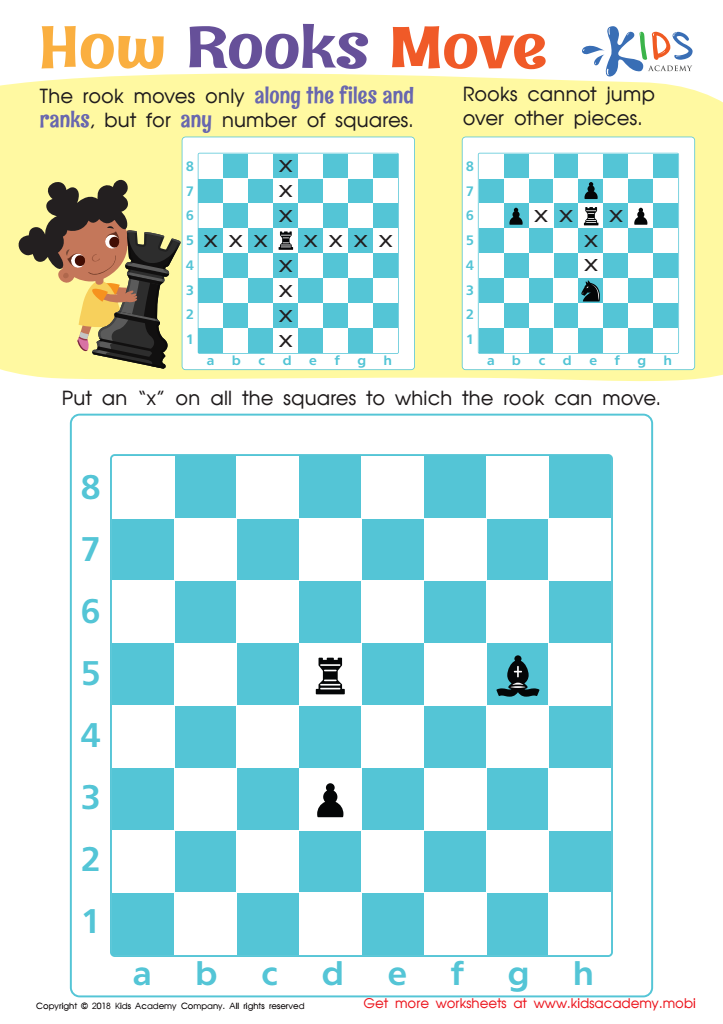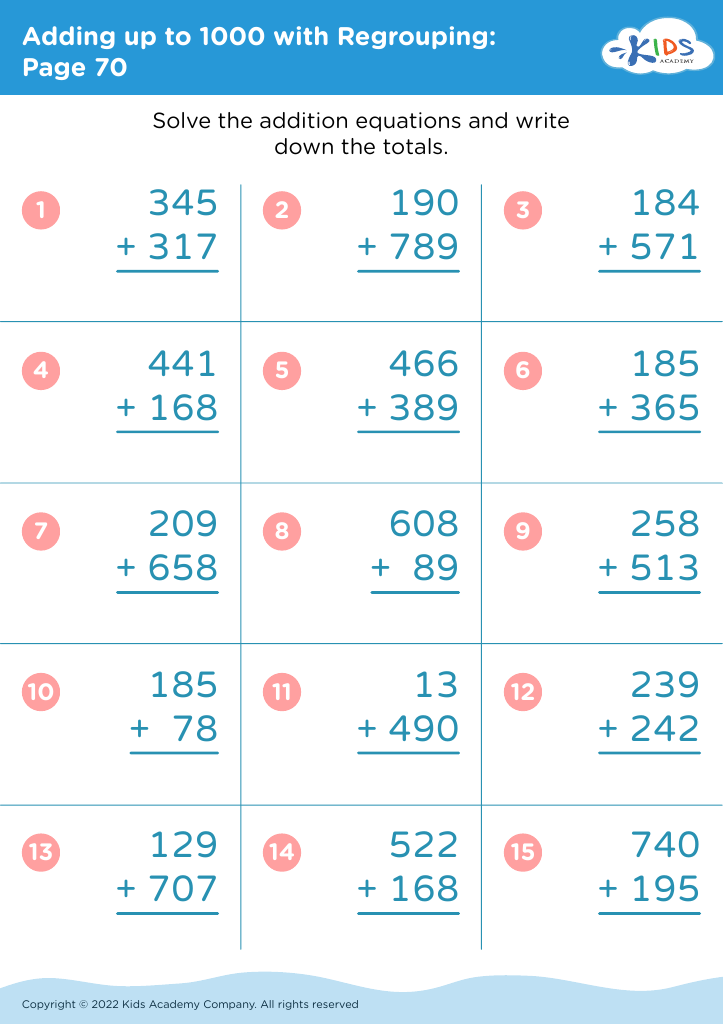Developing logic skills Worksheets for 8-Year-Olds
4 filtered results
-
From - To
Discover our engaging "Developing Logic Skills Worksheets for 8-Year-Olds," designed to enhance critical thinking and analytical skills through fun activities. These worksheets offer a variety of puzzles, pattern recognition tasks, and problem-solving exercises that challenge young minds while keeping them entertained. Tailored to meet the learning needs of kids aged 8, these resources help improve reasoning abilities essential for mathematical concepts and everyday decision-making. Perfect for teachers, parents, and homeschoolers, our worksheets promote independent learning and cognitive development in a playful manner. Explore our collection today and empower your child with essential logic skills for their educational journey!


How Rooks Move Worksheet
Developing logic skills in 8-year-olds is crucial as it lays the foundation for critical thinking and problem-solving abilities that will benefit them throughout their education and life. At this age, children are naturally curious and begin to engage in more complex reasoning. Strengthening their logic skills helps them make sense of the world around them by enabling them to analyze information, identify patterns, and draw conclusions based on evidence.
Furthermore, these skills are intertwined with academic success across subjects. In math, for instance, strong logic skills aid in grasping concepts like addition, subtraction, and even basic geometry. In reading, logical reasoning assists children in comprehending stories and understanding character motivations.
Additionally, fostering logic skills encourages independent thought and nurtures creativity. Children learn to approach problems methodically, opening the door to innovative solutions rather than just accepting things at face value.
Supporting the development of logical reasoning also cultivates resilience; students learn that challenges can be overcome with careful thought and systematic approaches. Consequently, parents and teachers play a vital role in providing activities, resources, and a conducive environment that promotes logical thinking, ultimately benefiting the child's overall growth and future success.
 Assign to My Students
Assign to My Students
























